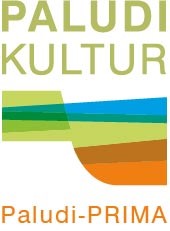Paludi-PRIMA
Putting Paludiculture into Practice: Integration – Management – Cultivation
Background

In Germany, drained peatlands are responsible for 37% of greenhouse gas emissions from agriculture, although they represent only 7% of agricultural land. In addition to emissions, conventional farming leads to soil degradation, subsidence and rising drainage costs. To prevent long-term abandonment and complete loss of productive agricultural land, alternative forms of cultivation are being developed for fen soils at water levels close to the surface: Paludiculture. The joint project Paludi-PRIMA investigates Reed and Cattail as native plant species that are adapted to water-saturated soils, enable peat conservation and have a high value creation potential based on the material use of the biomass.
Project goals
Paludi-PRIMA intends to contribute to putting paludiculture into practice on degraded fen sites. To this end, the project tasks cover a broad spectrum, ranging from basic scientific research to a field trial on approx. 8 hectares and to the elaboration of recommendations for farmers, authorities and politicians. The following questions will be addressed:
- Which species or genotypes of Cattail (Typha angustifolia, Typha latifolia) and Reed (Phragmites australis) are suitable for different site conditions and utilisation lines?
- What influence does site selection and management (water level, nutrient availability and harvest regime) have on productivity and biomass quality?
- What are the costs of switching to paludiculture (site preparation, planting, management, harvesting, drying and storage)?
- How can the economic viability of paludicultures be assessed in dependence of biomass quality and utilisation options
- How can paludiculture be integrated into agricultural policy, approval (water and nature conservation law) and planning processes?
Work packages
- WP 1: Project Coordination, Knowledge Transfer, Transferability
- WP 2: Genotyping of Reed
- WP 3: Cultivation and Harvest
- WP 4: Management
- WP 5: Biomass Quality
- WP 6: Economics of Paludiculture
Consortium
- Working Group Peatland Studies and Palaeoecology, University of Greifswald, Institute of Botany and Landscape Ecology (WP 1/3/5)
- Working Group General and Special Botany, University of Greifswald, Institute of Botany and Landscape Ecology (WP 2)
- Working Group Experimental Plant Ecology, University of Greifswald, Institute of Botany and Landscape Ecology (WP 4)
- Working Group Landscape Economics, University of Greifswald, Institute of Botany and Landscape Ecology (WP 6)
- Institute of Plant Production and business management, State Research Institute for Agriculture and Fisheries Mecklenburg-Western Pomerania (WP 1/6)
Publications
Final project report of PaludiPRIMA (German only)
Media
Paludi-PRIMA participated at the International Paludiculture Conference RRR2021 (09.-11.03.2021). All presentations are available online, sorted by author: Haldan, Köhn, Kuprina, Rudyk, Vogel, Wichmann
The RRR2021 Excursion to the Paludi-PRIMA pilot site also available on Youtube:










